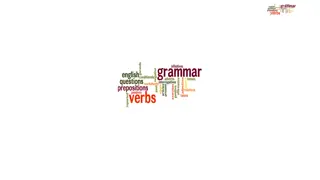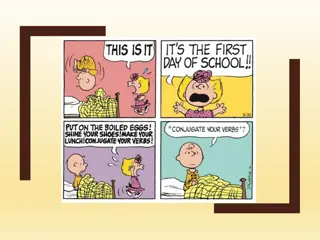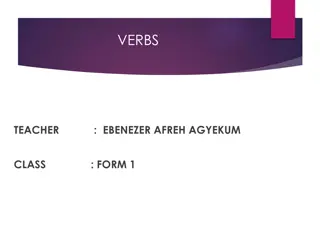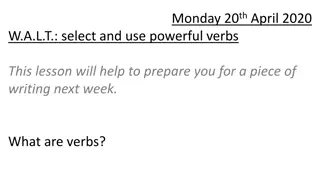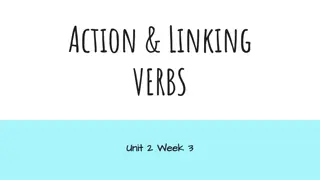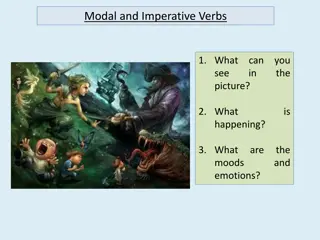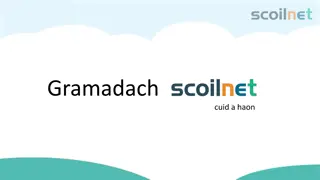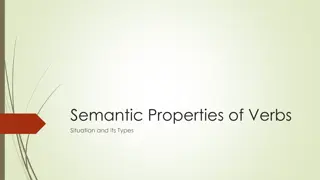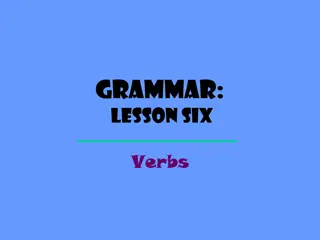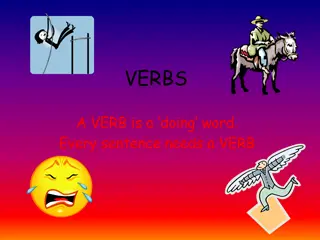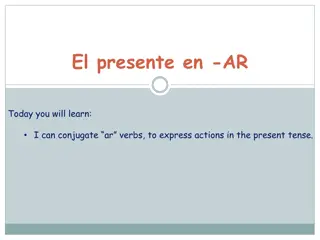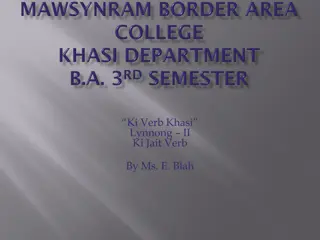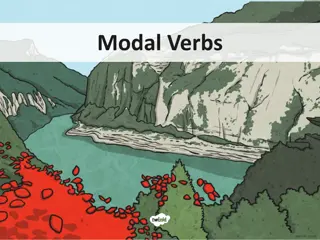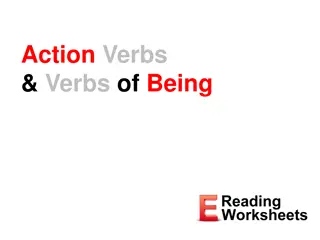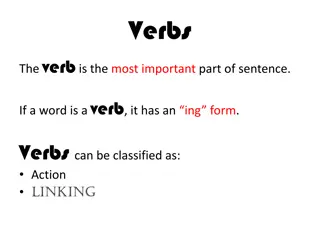
Understanding Verbs and Imperative Verbs
Learn about verbs and imperative verbs in this educational content. Discover what verbs are, how to use imperative verbs, and how to form verbs in the past tense. Explore examples and tips to enhance your language skills.
Download Presentation

Please find below an Image/Link to download the presentation.
The content on the website is provided AS IS for your information and personal use only. It may not be sold, licensed, or shared on other websites without obtaining consent from the author. If you encounter any issues during the download, it is possible that the publisher has removed the file from their server.
You are allowed to download the files provided on this website for personal or commercial use, subject to the condition that they are used lawfully. All files are the property of their respective owners.
The content on the website is provided AS IS for your information and personal use only. It may not be sold, licensed, or shared on other websites without obtaining consent from the author.
E N D
Presentation Transcript
Tuesday 19thJanuary Imperative verbs
What is a verb? Say some out loud Use the website to find out about imperative verbs: https://www.bbc.co.uk/bitesize/articles/zbxgn9q
https://www.bbc.co.uk/bitesize/articles/zh4thbk Past tense When verbs are written in the past tense they often end in -ed. If the word already ends in an e then you just need to add a -d. For example: free = freed, agree = agreed However, this is not always the rule. Sometimes the word completely changes. For example: run = ran Top tip! Think carefully about how to change the verbs to the past tense. Do you need to add -ed or change the word?

